Nikolai Markov (architect)
Nikolai Lvovich Markov (Russian: Николай Львович Марков, Persian: نیکولای مارکف, 9 January 1883 – 19 November 1957) was an Iranian architect of Russian descent.
Nikolai Markov | |
|---|---|
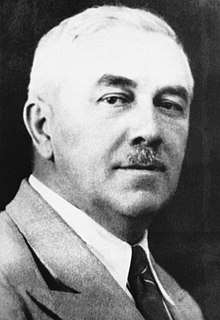 | |
| Born | 9 January 1883 |
| Died | 19 November 1957 (aged 74) |
| Nationality | Russian Iranian |
| Alma mater | Imperial Academy of Arts |
| Occupation | Architect |
| Buildings | Alborz High School, Holy Mother of God Church, Tehran, Fakhr al-Dawla Mosque |
Biography
Prior to his decisive settling in Iran, Markov was a high-ranking member of the Imperial Russian army, and fought in the Caucasus against the Bolsheviks under Colonel Nikolai Baratov, the commander of the Russian forces in Iran and to whose staff he was attached, and had served with the fanatically anti-Bolshevik Major-General Lazar Bicherakov, another one of Baratov's senior officers.[1] A staunch supporter of the White movement, in the years around and after the Bolshevik Revolution, he had served as a captain in the Persian Cossack Brigade under General Vsevolod Starosselsky as well.[1] Nikolai Markov later worked for the Municipality of Tehran where he built many buildings.[2][3][4][5] Alborz High School, the Post Office and Telecommunications of Tehran, factories and even a mosque.[6] He was buried at the Doulab Cemetery.
Gallery
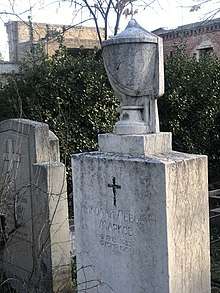
 Tehran Municipality
Tehran Municipality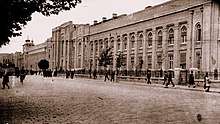 Post Museum (formerly Post Headquarters)
Post Museum (formerly Post Headquarters)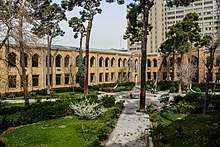 New Dar ul-Funun
New Dar ul-Funun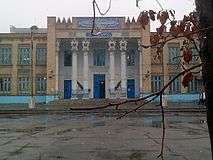 Anoushirvan High School
Anoushirvan High School- Adle House
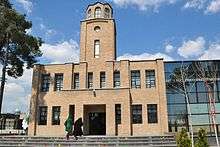 Qasr Prison[7]
Qasr Prison[7]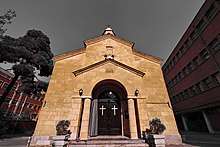
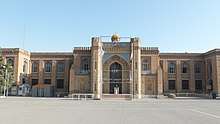 Alborz School
Alborz School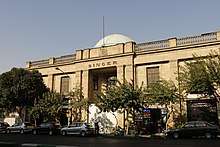 Singer Headquarters
Singer Headquarters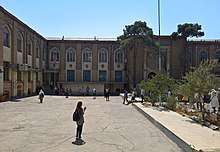 Jeanne d Arc School
Jeanne d Arc School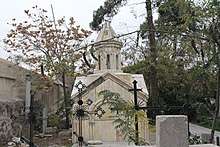 Georgian Prince Mausoleum
Georgian Prince Mausoleum Varamin sugar refinery
Varamin sugar refinery
References
- Cronin, Stephanie (2013). "Deserters, converts, Cossacks and revolutionaries: Russians in Iranian military service, 1800–1920". In Cronin, Stephanie (ed.). Iranian-Russian Encounters: Empires and Revolutions Since 1800. Routledge. p. 173. ISBN 0415624339.
- "Tehran Building Manifests European Architecture" (PDF). www.iran-daily.com (in French).
- "Nikolai Markov 1882- 1957 / 1261 -1336". www.darioush-shahbazi.com (in Persian).
- Culture and customs of Iran Par Elton L. Daniel,ʻAlī Akbar Mahdī (in French).
- {{Country data {{{1}}} | flaglink/core | variant = | size = | name = | altlink =national rugby union team | altvar =rugby union}} "Article Izvestia du 12.01.07". www.izvestia.ru.
- "La revue de Théhéran - Du messager à cheval au courrier électronique Le Musée des Postes et Télécommunications de l'Iran". www.teheran.ir (in French).
- Marketa Hulpachova and Sourena Parham (February 11, 2016). "From palace to prison: Iran's Qasr – in pictures". The Guardian / The Tehran Bureau. Retrieved December 26, 2017.CS1 maint: uses authors parameter (link)